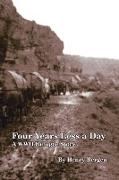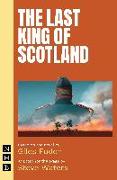Four Years Less a Day
BücherAngebote / Angebote:
The author tells the story of the first part of his own life as best he remembers it. The setting is a small village north-east of Krivoy Rog, on the rolling plains of the Ukraine. Born in 1931, the boy entered this world during a period of stress: economic depression, collectivization of farm lands, establishing communist power, being Mennonite in a predominantly Russo-Ukrainian society. Beyond the initial setting, the story is centred on major events in the life of the family. The first such event is the arrest of the father by the NKVD (KGB). This causes problems as the family struggles to survive on the earnings of one wage earner, the mother, who now has to support five children under the age of twelve. The next major event is WWII and the arrival of the German army. For a brief period, three years, this is a time of prosperity and hope. But that soon fades as the Germans are slowly forced out of the USSR. The German retreat leads to the exodus of the German/Mennonite people from the occupied lands. Whole villages assemble in great treks of horse and wagon and take to the road at the onset of winter with its rain, mud, snow and cold. The refugees first settle in Poland, but soon have to flee again. In the more hectic flight in the confusion of the last days of the war, the family looses track of each other. After the war the family is reunited with each other and later with family in Canada. After four years of traipsing around war-torn Europe the family is able to immigrate to Canada and settles in Manitoba.Henry was born in the Ukraine to German Mennonite parents in 1931. The full effects of Stalin's collectivization process were just beginning to be felt, with economic depression, reprisal and personal persecution including the loss of Henry's father to the KGB, becoming everyday facets of life.The arrival of the Germans during the Second World War offered a brief respite and longing for a life past. With the German defeat the Mennonites escaped the brutality of Stalin, being swept along with the German army to Germany with a young Henry bobbing along like jetsam on the sea. Disappointment and displacement in war torn Europe was resolved by emigration to Canada, to relatives who had moved there in the 1920s. That is the story told in the book.
Folgt in ca. 10 Arbeitstagen




